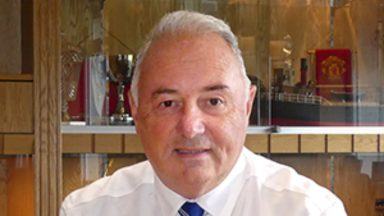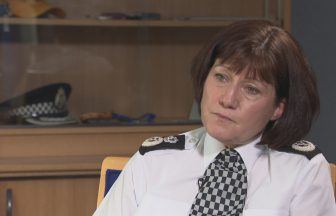The Royal College of Nursing has declared a “national emergency” due to the number of patients being treated in corridors.
Statistics released as part of a report by the union revealed that more than one in three (37%) nursing staff delivered treatment in inappropriate settings, such as corridors, on their last shift.
The RCN say the annual online survey, which was made up of almost 11,000 frontline staff, shows the extent to which “corridor care has been normalised”.
‘Corridor Care: Unsafe, Undignified, Unacceptable’ showed that over half (53%) of nurses were left without access to life-saving equipment including oxygen and suction, while more than two-thirds (67%) said the care they delivered in public “compromised patient privacy and dignity”.
Following the report, the nursing union is calling for any corridor treatment to be recorded and reported when it happens – so that the problem can be eradicated throughout the UK.
Professor Nicola Ranger, acting RCN general secretary and chief executive, said: “This is a tragedy for our profession. Our once world-leading services are treating patients in car parks and store cupboards.
“The elderly are languishing on chairs for hours and patients are dying in corridors. The horror of this situation cannot be understated. It is a national emergency for patient safety and today we are raising the alarm.
“Treating patients in corridors used to be an exceptional circumstance. Now it is a regular occurrence and a symptom of a system in crisis.
“Patients shouldn’t have to end up at the doors of our emergency departments because they can’t get a GP appointment, a visit from a district nurse or a social care package. But that is the reality.
“Corridor care is a scourge in our hospitals, but we know the solution is to invest in our entire health and care system – and its nursing workforce.”
Scottish Labour health spokesperson Jackie Baillie branded the report “shocking and said it laid bare the “scale of chaos engulfing Scotland’s NHS”.
She continued: “That so many patients are being left to languish in corridors while in need of urgent help is nothing short of a scandal.
“This is the result of 17 years of SNP failure and 14 years of Tory failure.
“Labour will deliver the change that our NHS desperately needs – starting by boosting funding by £134m a year.”
Meanwhile Scottish Conservative shadow health secretary Dr Sandesh Gulhane MSP said corridor care had become a “shocking norm”.
He said: “Seventeen years of SNP mismanagement has brought our health service to its knees and left hardworking NHS staff providing care in totally inappropriate settings.
“The lethal combination of the SNP’s dire workforce planning and Humza Yousaf’s flimsy recovery plan has resulted in what was once an emergency measure becoming the shocking norm.
“Corridor care often leaves my frontline colleagues without access to the lifesaving equipment they need, leading to tragic and avoidable deaths.
“We cannot expect nurses and frontline NHS staff to work in dangerous conditions with one hand tied behind their back and SNP ministers must act now to eradicate this crisis that, worryingly, is becoming increasingly normalised.
“I would urge Neil Gray to back the bold plans we set out in our new health paper that would cut waiting times, prioritise better working conditions for staff and embrace a modern, efficient, and local approach to our NHS.”
Record waiting lists
The reports comes after it was revealed in May that waiting lists are at an all time record high in Scotland, with figures showing more than 690,000 people waiting for appointments or treatment for non-urgent care.
Statistics, released by Public Health Scotland, also showed the number of people waiting for outpatient, inpatient or day case treatment, or one of the eight key diagnostic tests, increased to 840,300 as of March 31.
Scottish Tory health spokesman Dr Gulhane previously said the backlog was “out of control”.
“Over 840,000 Scots are still waiting for crucial treatment or diagnostic tests, with many of them being forced to endure unacceptable waits of over a year or more,” he added.
A Scottish Government spokesperson said health boards were taking action to improve patient flow and reduce delays and pointed to the £19.5m provided for health and social care in the 2024-25 Scottish budget.
A spokesperson said: “The Scottish Government recognises the NHS remains under pressure, and to help address this the 2024-25 Scottish Budget provides over £19.5bn for health and social care. Although challenges and difficult decisions remain, this has given our NHS a real terms uplift in the face of an extremely difficult financial landscape.
“Through our Urgent and Unscheduled Care Collaborative Programme, Scotland’s health boards are taking action to improve patient flow and reduce delays. In addition, the Health and Care Staffing Act, which came into effect last month, was introduced to help ensure appropriate staffing levels are in place across all health and care settings.”
The Liberal Democrats have been contacted for comment.
Follow STV News on WhatsApp
Scan the QR code on your mobile device for all the latest news from around the country



























